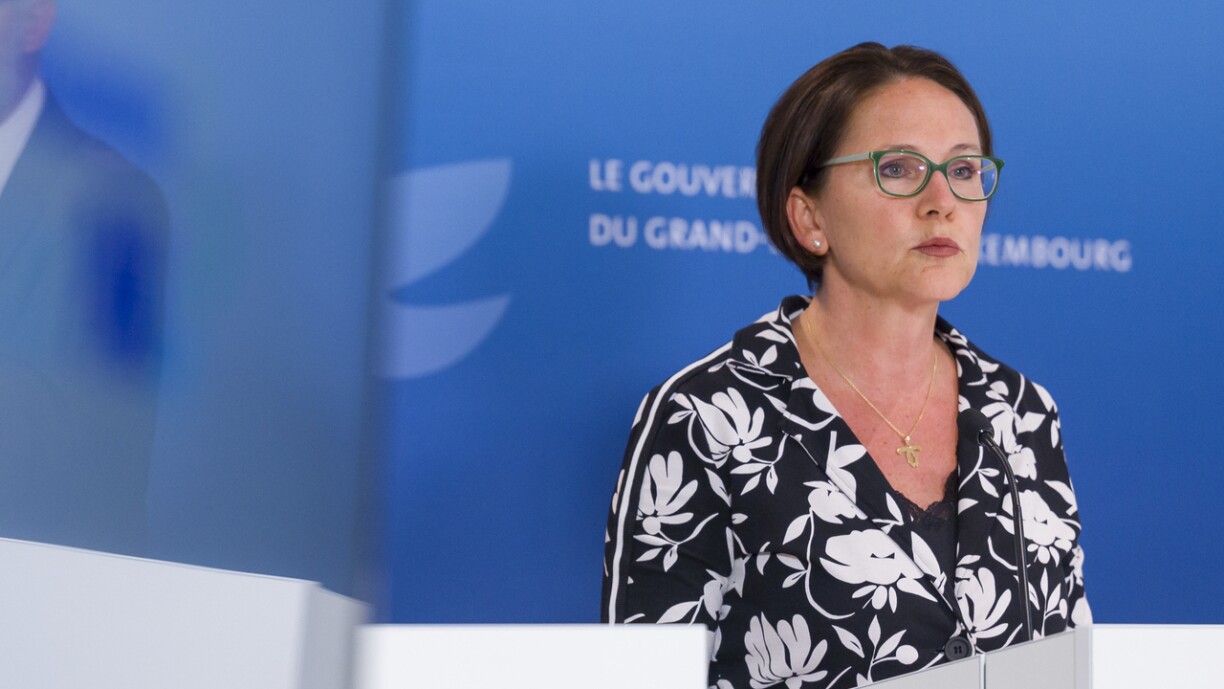
While the draft state budget for 2023 is a “crisis budget”, it was nevertheless presented to parliamentarians on Wednesday as “realistic, supportive, and responsible” by Minister of Finance Yuriko Backes.
The deficit of the central government, without the municipalities and social security, will be €2.8 billion this year. This is also reflected in the public debt: next year it will reach 26.3% of GDP and even 29.5% in 2026, as Prime Minister Xavier Bettel had already announced the day before during his speech on the state of the nation.
Backes stressed that public debt will still be below the target of a maximum of 30% of GDP. Without all the crisis spending in recent years, the debt would have reached 23% by 2026.
For the state as a whole – including the central state, municipalities, and social security – a deficit of €1.8 billion is expected in 2023. The state’s revenues amount to almost €24.5 billion.
Next year, investments of €3.8 billion are planned. This corresponds to around 4.6% of GDP. This is more than €600 million compared to 2022.
Backes explained to the Chamber of Deputies on Wednesday that the state has put €5.5 billion on the table to deal with the pandemic and to help individuals and businesses. As a result, there is no room for a major tax reform.
Individualising tax scales would cost the state €2 billion a year and “would damage confidence in Luxembourg,” she warned. As for a tax reform, Backes stated that it is “not cancelled but postponed.”
The tax credit currently amounts to €1,500 per year for an annual income up to €35,000. In the future, it will be increased to €2,505 for an income of up to €60,000 per year, and then gradually decreased up to an income of €100,000. This represents an additional €1,000 per year.
In the area of housing, a “coherent” policy is being pursued in the Minister’s view. Backes reiterated the planned amendments to accelerated depreciation, i.e., a tax advantage for rental investments that can now only be used twice in a lifetime.
In order to attract talent from abroad, the income threshold for benefits will be lowered from €100,000 to €75,000. In the same vein, the benefits that companies can grant to their employees will also be redefined more widely.
The VAT for the installation of solar panels will be reduced from 17% to 3%. For repairs to household appliances, it will be reduced from 17% to 8%. VAT on the purchase of electric bicycles will be reduced to 8%. As decided at the September tripartite, these rates will also be reduced by a further percentage point to 7%.
Investments will remain “high” at €3.8 billion next year. €600 million more than this year. They are urgently needed for new infrastructure: roads, railways, buildings, schools.
With this draft budget, the Minister of Finance believes that Luxembourg will emerge stronger from the crisis. Despite the fact that she also said that no one can predict whether the eurozone will slip into a recession next year or not. Even the prediction that inflation will fall to 2.8% next year, due to the slowdown in energy prices, is “not set in stone.”
The deadline for filing tax returns in Luxembourg has been extended to 31 December, rather than the end of March or even the end of May as at present.